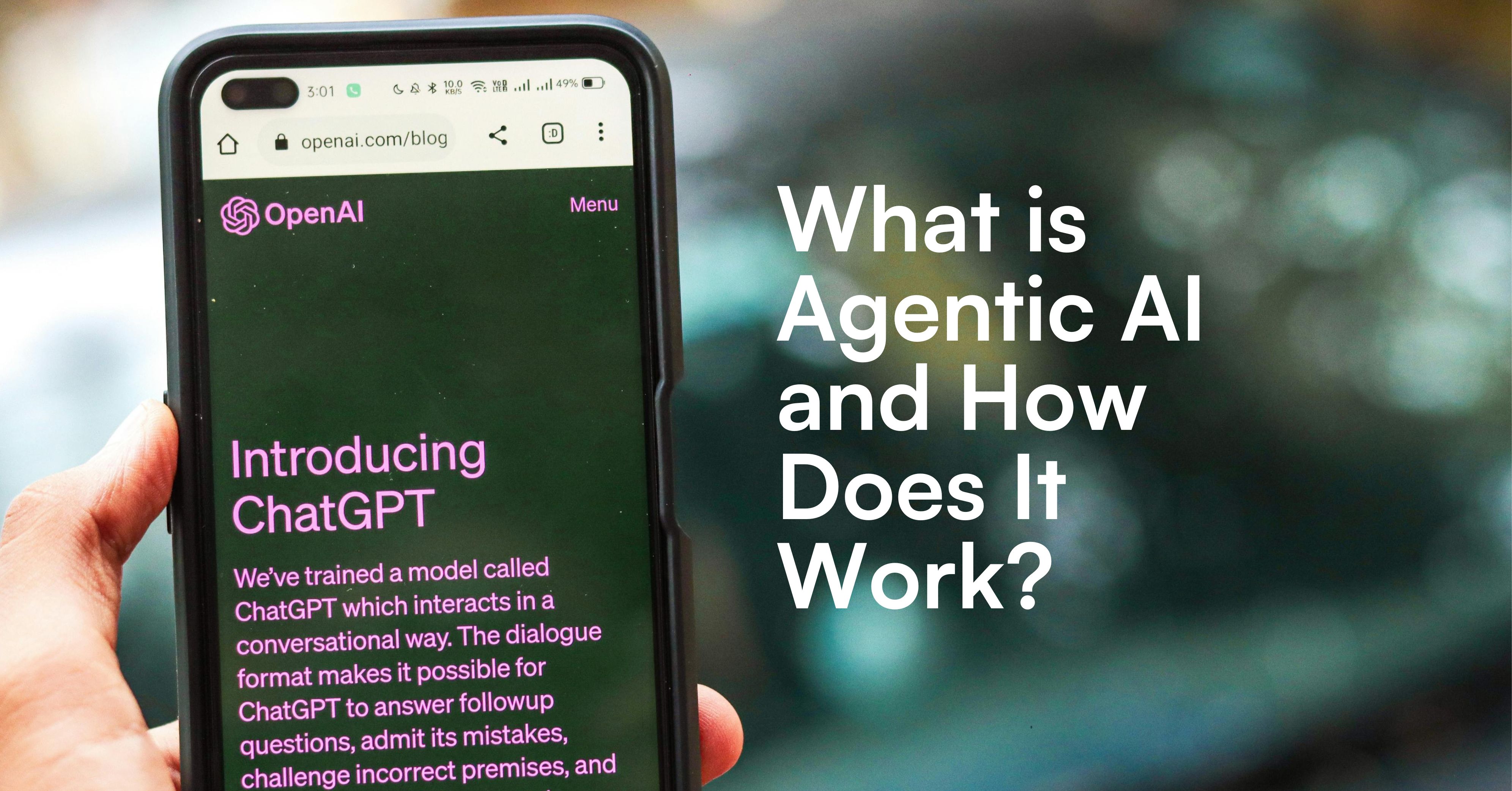February 23, 2026
How to Choose the Best eCommerce Analytics Tools in 2026
How to choose the best eCommerce analytics tools in 2026. Compare profit-first platforms, AI capabilities, SKU-level analytics and omnichannel insights.
AI eCommerce
Tuesday, August 19, 2025
What is Agentic AI? And more importantly for eCommerce brands: is this just another tech fad, or is there real-world potential behind the buzz?

Welcome to the next frontier in artificial intelligence: Agentic AI. If you've spent any time lately doomscrolling through AI headlines or testing tools like ChatGPT, you've probably heard whispers of "AI agents". But what does it mean? And more importantly for eCommerce brands: is this just another tech fad, or is there real-world potential behind the buzz?
In this article, we break down what Agentic AI actually is, how it works, and why it could be a game-changer for brands trying to outpace the competition. Spoiler alert: it’s not just hype.
Let’s start simple. Agentic AI refers to artificial intelligence systems that can make decisions, take actions, and adapt to results without needing constant human input. Instead of just answering questions (like a chatbot), these systems behave more like autonomous agents with specific goals, tools at their disposal, and the smarts to pursue outcomes.
You can think of Agentic AI as the difference between:
In short, agentic AI systems are designed to do things, not just say things.
This shift from reactive to proactive is massive, and it’s unlocking new opportunities in everything from code generation and research to, yes, eCommerce.
Let’s break it down with as little Silicon Valley hand-waving as possible.
Agentic AI systems typically work through a loop that mimics a smart assistant that never sleeps:
This cycle allows agentic systems to manage complex, cross-functional tasks, the kind you’d normally need a team (or a ton of manual hours) to coordinate. And because they operate in real-time, they can respond to performance changes far faster than any human analyst could.
Agentic AI might sound futuristic, but it's already at work across industries:
Tools like AutoGPT and Devin act as autonomous coding agents. You don’t tell them how to code, you tell them what you want built. From there, they research requirements, write the code, test it, and even debug errors. It’s like hiring a junior developer who works around the clock.
Instead of Googling and compiling research manually, agentic systems can browse the web, summarise sources, cross-reference information, and deliver a draft blog, business report or strategy summary - all within minutes.
Personal AI assistants can now schedule meetings, book travel, respond to emails, and manage to-do lists autonomously. They interpret context, handle unexpected changes, and even send reminders.
Some AI agents are empowered to resolve tickets without a script - interpreting sentiment, applying discount policies, escalating appropriately, or offering relevant products.
In each of these scenarios, the agent isn’t simply following rules. It’s reasoning, adapting, and executing across multiple steps to fulfil a larger business goal.
Now imagine applying that level of autonomy to your entire eCommerce operation…

This is where the future gets exciting and very practical. If you’re running an eCommerce brand, agentic AI can act like a multi-skilled strategist, marketer, merchandiser, and analyst all rolled into one.
Here’s how it plays out across key areas of your business:
An agentic system can:
And it can do this continuously, without needing your marketing team to manually pull and compare reports every week.
Merchandising agents can:
Instead of managing by gut feeling, these insights help teams make data-backed decisions faster and sometimes automatically.
What if you had an agent whose only job was to protect your margins?
Think of it as having a profitability watchdog that never sleeps.
Agentic AI can:
It’s like having a loyalty manager who knows every customer personally and acts accordingly.
In essence, agentic AI doesn’t just make sense of your data. It acts on it, driving decisions, actions and outcomes, all without waiting for someone to run a report.
And with platforms like Conjura’s AI Agent, this isn’t a vision of the future. It’s already happening.
There’s no shortage of AI tools promising to “revolutionise” eCommerce, from product description generators to customer support chatbots. But most still rely on manual prompts and siloed data.
Conjura’s AI Agent is different. It's like ChatGPT, but for your entire eCommerce analytics stack.
It acts like an in-house AI Analyst. You can ask it to:
This kind of agentic AI for eCommerce turns your raw performance data into a decision-making engine - no spreadsheet wrangling or data scientist required.
As AI continues to evolve, platforms like Conjura are paving the way for eCommerce brands to make faster, smarter, and more profitable decisions, autonomously.
Of course, autonomy doesn’t come without risk.
That said, these risks are manageable, especially when tools are designed with transparency and business context (like Conjura) built in.
Agentic AI represents a shift from insights to action. Instead of waiting for reports or manually digging through dashboards, brands can now act at the speed of their data.
For eCommerce brands looking to stay ahead, this isn’t just a nice-to-have. It’s the future of how high-performing businesses will operate. Having an in-house data analyst is expensive; however, now with Conjura’s AI Agent, powerful, easy-to-understand insights are available at a fraction of the cost.
Agentic AI exists to optimize your eCommerce business’s processes, unlocking exciting doors that weren’t possible before.
Discover the latest eCommerce guides, articles and tips to help your brand grow.
Book A Demo
Book a demo with one of our team to discover the power of Conjura and how it can transform your business.
Revenue Increase
"I’m a big fan of Conjura and there’s so much more for us to keep getting from it.”
Kayla Wilson, Marketing Director @ Furniturebox
Explore the
Platform
